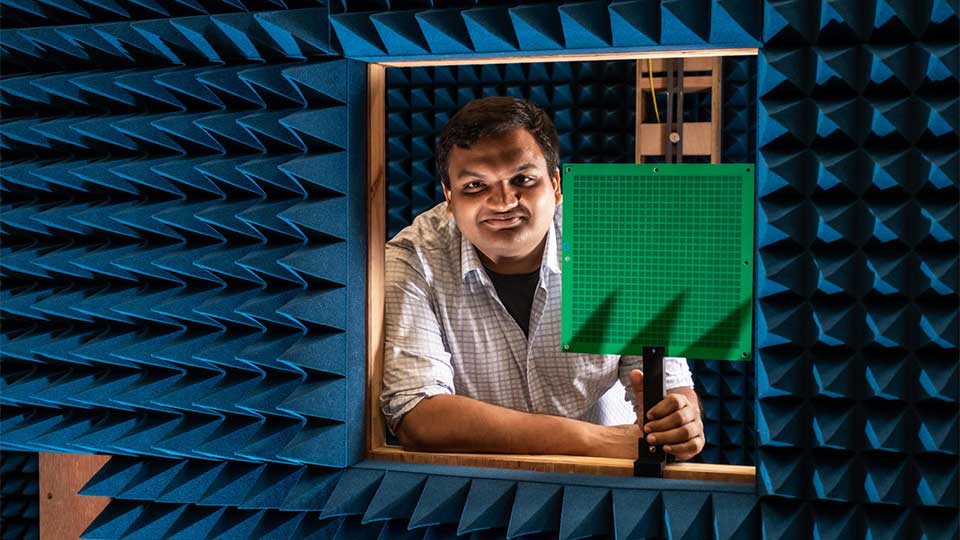Dr Aakash Bansal, a Research Associate at the University’s Wolfson School of Mechanical, Electrical and Manufacturing Engineering, aims to develop a new communication system for small satellites that will spread internet connectivity to areas where no network is currently available.
His work, which will be facilitated by a two-year fellowship at the Royal Academy of Engineering (RAEng), will focus on exploiting the benefits of leaky-wave antenna to develop a low-cost, low-powered solution to worldwide connectivity.
Dr Bansal hopes his work will make our roads safer: “My research will help by enabling and connecting autonomous vehicles with each other through low earth orbit satellites, making them and motorways safer so that people can just relax in the car while they get taken wherever they need to go without worrying about accidents. The idea is to move towards a net zero accidental situation.
“This technology involves developing very small and lightweight satellites - which are about 20 by 30 centimetres in size. They're kept very close to earth forming a blanket of small satellites in space providing connectivity to places where you have no network through current infrastructure.
“The idea is that if there's a very small antenna on top of a car running at 100mph, it can still stay connected with the network through either a single or multiple satellites.
“For autonomous vehicles, one of the biggest problems right now is the fact most sensors are perception based – so they’re cameras and LIDARs placed on the car which are at risk of failure in adverse weather conditions – such as rain or snow. Introducing these satellites will allow vehicles to talk to each other and keep sharing necessary information ahead. This allows the cars to make educated decisions to ensure human lives are safe.”
The research, which is possible as a result of £250,000 worth of funding from the Academy, is set to last two years and will be undertaken in collaboration with external partners – including National Highways, Satellite Applications Catapult and Rogers Corporation.
Dr Bansal says his project won’t just help on the roads either: “There have always been three basic human needs - food, housing, and clothing. However, in the last 20 years, telecommunications have become another key component of survival. It is almost impossible to imagine a life without internet and telecommunication for most of us, however, life without internet is a reality for many.
“Even now, there are significant sections across the globe where there's still no connectivity. How much can we transform the world once everyone is able to talk and learn from each other? This project can really help improve the lives and life chances of those living in the most remote areas.
“The end goal is to ensure that we have a whole shield of satellites covering most of the planet so that no matter where you are - whether that’s Antarctica, a remote village in India or a café in London - you will always have access to good data speed so that you're never disconnected with the world.”
